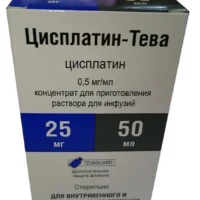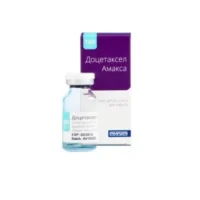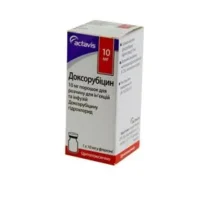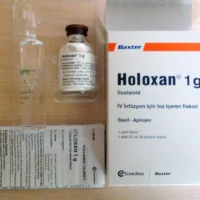Description
Irinotecan Vista for Infusions 20 mg/ml. 5 ml/100 mg Vial
Ingredients:
Irinotecan Vista contains irinotecan hydrochloride trihydrate as the active ingredient.
Dosage:
The recommended dosage of Irinotecan Vista for infusion is determined by a healthcare provider based on individual factors such as body surface area and the specific condition being treated.
Indications:
Irinotecan Vista is indicated for the treatment of colorectal cancer and other solid tumors.
Contraindications:
Irinotecan Vista is contraindicated in patients with a known hypersensitivity to irinotecan or any of the excipients in the formulation.
Directions:
Irinotecan Vista should be administered by a healthcare professional experienced in the use of cancer chemotherapeutic agents.
Pharmacological Effects:
Irinotecan Vista is a topoisomerase I inhibitor that interferes with DNA replication and cell division, ultimately leading to cell death. It is an important component of many chemotherapy regimens for solid tumors.
Clinical Trials:
Studies have shown that Irinotecan Vista, when used in combination with other chemotherapy agents, can significantly improve progression-free survival in patients with advanced colorectal cancer.
Additional Information:
It is important to monitor patients receiving Irinotecan Vista for signs of neutropenia, diarrhea, and other potential adverse reactions.





